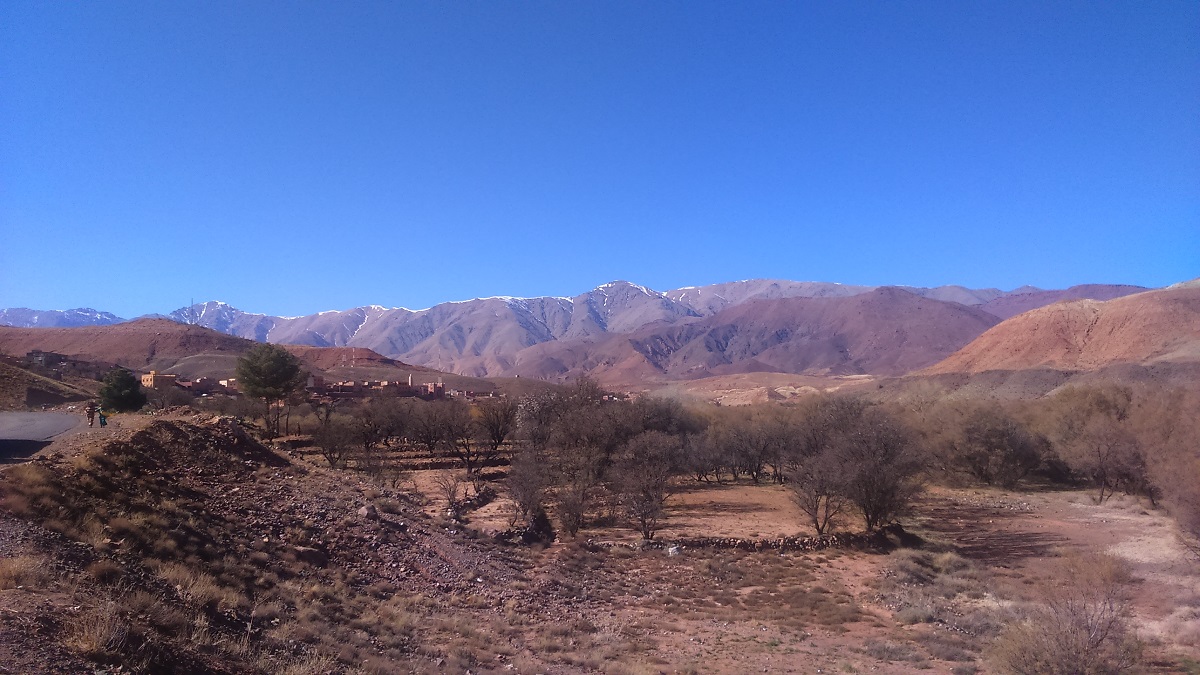The North African country of Morocco is heavily dependent on agriculture, which employs 40% of its labour force and is vital for feeding its growing population. However, it is extremely vulnerable to the impacts of climate change, with overall temperatures projected to increase, and precipitation to decrease sharply, leading to an increase in major droughts.
Morocco’s National Institute of Agronomic Research (INRA) has identified a need to increase its capacity to carry out agricultural research that addresses the needs of Moroccan farmers, especially smallholders in more marginal areas, to respond to climate change. In 2020, the British Embassy in Morocco, through the North Africa Technical Assistance Facility of the UK Government managed by Tetra Tech International Development, asked NRI to assess their capacity-building needs in this area. NRI Professors Hans Dobson and John Morton visited INRA headquarters and four of its Regional Centres, holding meetings and participatory workshops with INRA staff to identify research needs, seeing INRA research and getting the views of other stakeholders.
As a result of the mission, detailed proposals for capacity building for INRA involving NRI and other UK centres of expertise were drawn up, though their implementation was delayed by COVID-19. Further discussions led to agreement on a focussed programme of capacity building that could be delivered remotely, and three strands of training were delivered by NRI staff.
Prof John Morton delivered training to 34 INRA researchers on climate change, giving them a greater insight into the specific nature of climate change impacts on smallholders and the rural poor, the issues of adaptation and vulnerability that arise from those impacts, and some implications for the practice of agricultural research and the role of research organisations. The great majority of trainees were researchers in the biophysical sciences, who were introduced to some social-scientific and interdisciplinary perspectives as complementary to their existing expertise. Dr Andrew Armitage delivered training in bioinformatics (science of genome analysis and handling of large-scale sequence data), responding to the specific needs identified by INRA. This training in DNA analysis, genome sequencing and computing, supports researchers to identify and use genetic diversity in crop material within breeding programmes, a key component for breeding new crop varieties that may be more resilient to climate change and tolerant to drought. Researchers at INRA were also interested in applying genome sequencing to develop new diagnostic tests for plant diseases, particularly those whose spread may be subject to climate change. Dr Armitage delivered general training sessions to 34 INRA researchers followed by advanced training, open-forum discussions, and one-to-one engagement on research activities identified by individual trainees. Dr Huiyi Yang delivered training on use of climate and agri-climate models, a key training need identified by INRA, involving general sessions for 16 INRA staff, hands-on workshop sessions on the Linux Operation System and the General Large Area Model (GLAM) for Crops, advanced sessions based on case-studies, and drop-in sessions.
Overall evaluation by trainees was very positive with the training being evaluated as “good” or “very good” in all dimensions. The project allowed the NRI researchers to assist individual INRA staff with research design and the preparation of two peer-reviewed articles (Khayi et al. 2021 in Mitochondrial DNA Part B, Snaibi et al. 2021 in Heliyon).
Note: NRI would like to thank the management and staff of INRA, and particularly Dr Abderrahime Bentaibi, Dr Slimane Khayi and Dr Tarik Benabdelouahab for assistance with needs assessment and management of the training.


